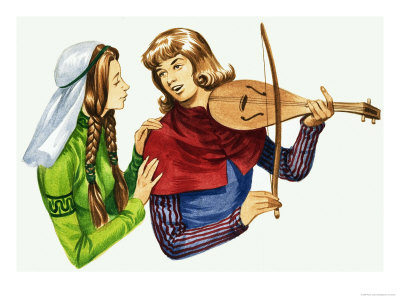Such was the zeal which
Francis had for the preservation of the perfection in the Order, and such
seemed to him the perfection of the profession of the Rule, that he often used
to consider who would be sufficient after his death to govern the whole Order
and to protect the perfection in it with the help of God— but he came upon none
that were fit.
So near the end of his life, a certain friar said to him,
“Father, you will pass away to the Lord, and this family which has followed you
will remain in the vale of tears. Point
out any in the Order, if you know one, on whom your mind might be at rest, on
whom the burden of the Minister-General may be worthily imposed.”
Francis answered, punctuating all his words with sighs, “My
son, I behold no sufficient leader of so great an various an army, no shepherd
of so wide and scattered a flock, but I will point to you one in whom should
shine out how the leader and shepherd of this family ought to be.
"This man,” he said, “ought to be of the most
serious life, of great discretion, having a good reputation, without personal favoritism,
unless he should prefer some and so cause scandal in the whole. There should be in him a strong zeal for
prayer, focusing some of his time on his own soul and some on his flock. Early in the morning, he should put before
all things the holy sacrifice of the Mass and there, with devotion, he should
most earnestly commend himself and his flock to divine protection. But after prayer he should put himself in the
midst of the friars so that he might be questioned by all, answer to all to
provide for all with charity and patience and gentleness.
“For he should show no favor to anyone, so that he should
not pay less attention to the simple or foolish than to the wise and
learned. To those whom the gift of
learning is granted, let them display in their manner the stamp of piety and
simplicity, of patience and humility and let him cherish these virtues in
himself and in others and continually exercise himself in preaching to them,
inciting others more by example than by speech.
Let him be a hater of money, which is the chief corruption of our
profession and perfection and as the head and example to be imitated by all,
let him in no wise be wasted by many store-chests.
“Let a habit and a book be sufficient for him, but for
others writing utensils. Let him not be
a collector of books nor much given to reading, let haply that he be taken from
his office which is given to studying.
Let him console piously the afflicted, since he is the last resort of those
in tribulation, since if he isn’t seen as having hope for the infirm, the sick
would despair of disease. Let him lead
the violent to gentleness, let him bear himself humbly and relax something of
his own rights that he might have profit of their soul. To the runaways of the Order, as to sheep who
have perished, let him extend compassion and let him never deny mercy to
them—for he should know that those temptations to be very great which could
compel a fall to such—such temptations that, if the Lord should permit him to
suffer, he might be fated to fall into even a greater chasm.
“I will that he, as vicar of Christ, be honored by all
with devotion and reverence and that he be provided for by all and in all
things with all good-will, according to his necessity and the lowliness of our
condition. Yet he should not to smile on
honors nor to rejoice more in receiving favors than in receiving injuries, so
that his attitude is not changed by honors except for the better. But if sometimes he may need better food, let
him not eat it privately, but in a public place, so that the shame may be taken
from others of providing them in their infirmities and weaknesses. He should distinguish hidden knowledge and to
search out the truth from secret vanities.
Let him hold all accusations suspect in the beginning, until the truth
begins to appear by diligent examination.
Let him not lend his ear to many speakers, and let him hold them
especially suspect in accusations, nor lightly believe them. He should be this way because of the desire
of retaining the honor, never injuring nor relaxing the form of justice and
equity. Even so, he should not be so
rigorous that the soul of anyone would be destroyed nor out of excessive
gentleness he would generate sloth nor from lax indulgence should discipline be
dissolved. And thus he would be feared
by all and loved of those that fear him.
"Let him always think and feel the office of his prelacy rather a burden
than an honor to him. I wish also that
he have for his companions people who are known for their honesty,
self-controlled, strong in times of need, pious and compassionate to the
straying, giving equal attention to everyone and receiving those coming to them
with holy joy and showing the form and observance of the gospel, according to
the profession of the Rule, in themselves purely and simply to all. Behold, I say, such should be
Minister-General of this order and such companions that he should have.”
-The Mirror of Perfection, Section V, Chapter 80
Silence.





















